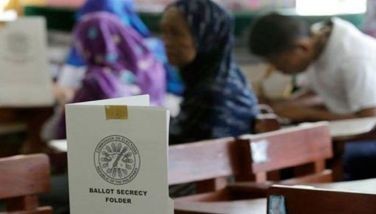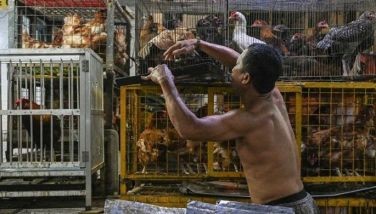UN calls for 5,000 Ebola health workers
MANILA, Philippines - About 5,000 international medical, training and support personnel, including 700 to 1,000 foreign health workers, are needed in Guinea, Liberia and Sierra Leone over the coming months to treat patients afflicted with the Ebola virus.
The United Nations said these three West African counties are hardest-hit by the Ebola outbreak.
The World Health Organization (WHO) has declared a global total of 13,703 confirmed, probable and suspected cases of Ebola in Guinea, Liberia, Mali, Sierra Leone, Spain and the US, and Nigeria and Senegal, two previously affected countries.
A total of 4,922 deaths have been reported.
The World Bank is boosting its efforts in assisting health workers fight the deadly Ebola outbreak in the three most-affected countries in West Africa as part of the wider UN Ebola crisis response.
World Bank president Jim Yong Kim confirmed an additional $100 million in funding to be directed towards speeding up the deployment of foreign health workers to Guinea, Liberia and Sierra Leone.
The new funding brings the bank’s total pledges to $500 million.
Jim said the world’s response to the Ebola crisis has increased significantly in recent weeks.
“But we still have a huge gap in getting enough trained health workers to the areas with the highest infection rates,” Jim said.
“We must urgently find ways to break any barriers to the deployment of more health workers. It is our hope that this $100 million can help be a catalyst for a rapid surge of health workers to the communities in dire need.”
The new injection of World Bank funding will fuel the Ebola response’s sprint towards reaching the 70-70-60 target established by UN Mission for Ebola Emergency Response (UNMEER) and WHO with the goal of isolating and treating 70 per cent of suspected Ebola cases in West Africa and safely burying 70 per cent of the dead within the next 60 days.
In addition, it will also help set up a coordination hub in close cooperation with the all stakeholders confronting the crisis – from the governments of Guinea, Sierra Leone and Liberia to the UN’s frontline Ebola responders such as the WHO and UNMEER.
Jim said they need to find all ways possible to remove any obstacle to health workers from serving. “Health workers are heroes, and we should treat them as such,” Jim said.
Jim said many lessons are to be learned in the tragedy as a key element in fighting the spread of Ebola is to ensure that countries build and maintain the appropriate systems for limiting contagion. – With Roel Pareño
- Latest
- Trending

































